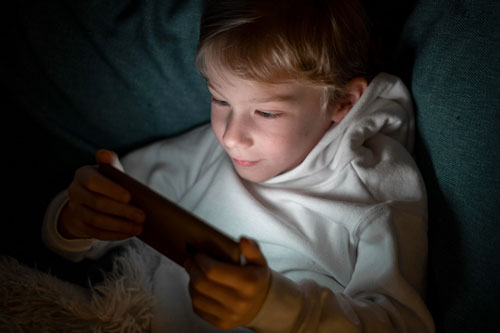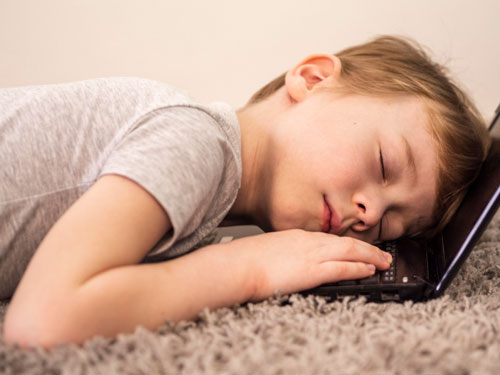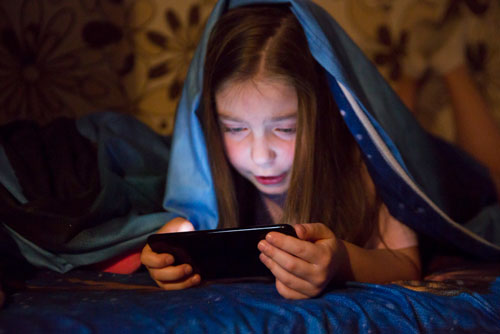In today’s digital age, children are growing up surrounded by screens. Whether it’s smartphones, tablets, computers, or televisions, screens have become an integral part of their daily lives. While technology offers numerous benefits, concerns have arisen about its impact on children’s sleep patterns.

The Screen Time Epidemic: A Closer Look
What is Screen Time?
Before we delve into its effects on sleep, it’s crucial to define what screen time entails. Screen time refers to the duration spent using digital devices such as smartphones, tablets, computers, and televisions. It encompasses various activities, from educational apps to social media browsing and gaming.
The Escalating Trend
The rise of screen time among children is undeniable. According to recent studies, the average American child spends over seven hours a day in front of screens. As screens become more accessible and engaging, this trend is expected to continue growing.

The Sleep-Wake Cycle: Understanding the Basics
The Importance of Sleep
Sleep plays a vital role in a child’s physical, emotional, and cognitive development. It is during sleep that the body repairs itself, memories consolidate, and growth hormones are released. Disrupting this delicate balance can have far-reaching consequences.
The Sleep-Wake Cycle
The human body follows a natural sleep-wake cycle, regulated by circadian rhythms. Exposure to light, particularly natural daylight, helps synchronize this cycle. However, excessive screen time can disrupt this delicate balance by emitting blue light that suppresses the production of melatonin, a hormone responsible for inducing sleep.
The Impact of Screen Time on Children’s Sleep
Blue Light and Sleep
One of the most prominent concerns regarding screen time is its impact on the quality of sleep. Blue light emitted by screens closely mimics natural daylight, confusing the body’s internal clock. This confusion can lead to difficulty falling asleep, reduced sleep duration, and fragmented sleep patterns.
Stimulating Content
Apart from the light emitted, the content itself can be stimulating and emotionally engaging. Children exposed to exciting or frightening content before bedtime may experience heightened emotions, making it challenging to transition to a peaceful sleep state.
Reduced Physical Activity
Excessive screen time often replaces physical activities. Lack of exercise can contribute to restlessness and an inability to fall asleep promptly.

Strategies for Managing Screen Time and Promoting Healthy Sleep
Establish Screen Time Limits
Setting clear boundaries on screen time is essential. Create a daily schedule that includes designated periods for device use and stick to it.
Encourage Outdoor Play
Outdoor activities not only provide physical exercise but also exposure to natural light. This helps regulate the sleep-wake cycle.
Create a Relaxing Bedtime Routine
Establish a calming bedtime routine that includes activities such as reading, gentle stretching, or meditation. This signals to the body that it’s time to wind down.
Screen Filters and Blue Light Glasses
Consider using screen filters or blue light glasses to reduce the impact of blue light on sleep.
Open Communication
Talk to your child about the importance of sleep and the potential consequences of excessive screen time. Encourage them to express any sleep-related concerns.
Conclusion
In today’s tech-savvy world, the connection between screen time and sleep problems in children cannot be ignored. Excessive screen time, exposure to blue light, and stimulating content can disrupt a child’s sleep-wake cycle, leading to various sleep problems.
However, with thoughtful strategies and open communication, parents and caregivers can help children strike a healthy balance between screen time and quality sleep.
Prioritizing sleep is essential for a child’s overall well-being and development. By understanding and addressing the impact of screen time, we can ensure that children get the restorative sleep they need for a brighter, healthier future.







